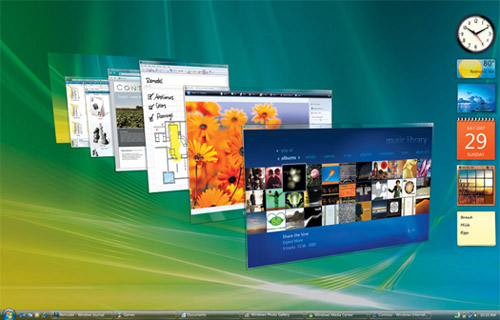Top Windows 7 Features That Vista Should Have Had
In order to really understand the importance of Windows 7, we've got to go back in time a bit and take the whole of Microsoft's work into account. For those of you old enough to remember Y2K and that underground bunker you built in order to stay safe, you're probably old enough to remember Windows ME. It's almost impossible to argue that ME was Microsoft's biggest gaffe in terms of operating systems; ME barely lasted on the market, and Windows XP ushered in what the company's real next generation OS should've been. It was a monumental leap from Windows 98; driver issues suddenly vanished (for the most part), productivity shot up and consumers/corporations alike flocked to upgrade.

Windows ME: "Oh, The Horror!"
Windows XP lived a good, long life, and with only a few exceptions, the press and consumers alike seemed to love it. Microsoft was riding high, and it only expected to ride even higher than the launch of Vista. The company spent inordinate amounts of money promoting it in every nook and crannie it could find, and the whole world was soon under the impression that the "Wow!" was for real. Microsoft encouraged us all to set our expectations high, and we did. The world did. But when Vista launched, folks were baffled--the wow that was promised was nowhere to be found, or if it was found, it was watered-down. Vista felt like Windows XP, only with more glossy and system requirements that were downright painful at first. Upgrading older machines was a challenge, and many simply couldn't handle the stress of Vista. Look at the modern day netbook, for example. Netbooks weren't even a sector when Vista arrived, and yet all netbooks today ship with either Linux or Windows XP, because manufacturers know that Vista is too resource intensive.

Windows XP: "Old Faithful"
Honestly, Windows 7 would have to do little more than "be the Vista that Vista should have been" in order to receive praise, but Microsoft made sure to do more than that. Windows 7 reminds us a lot of Windows XP in terms of what was anticipated compared to what was/is being delivered. We won't go so far as to say that Vista is the ME of the modern day, but it's close.

Windows Vista: "What Could've Been..."






